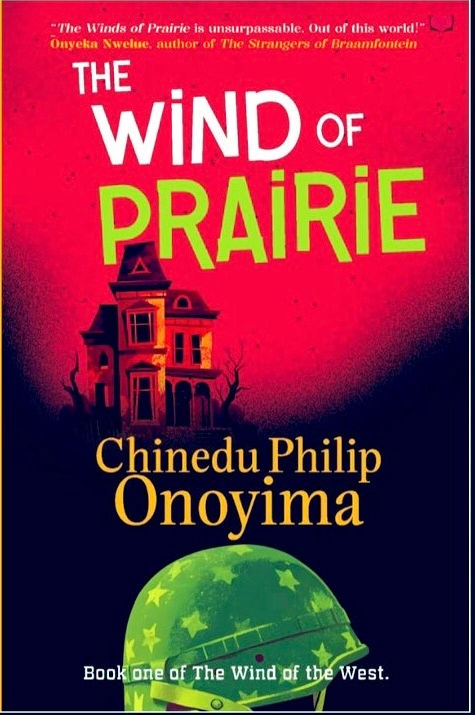The Wind of Prairie
- Chinedu Philip Onoyima
- Sep 30, 2024
- 2 min read
Updated: Oct 1, 2025

The Wind of Prairie is the cornerstone of The Wind of the West series, unveiling a cast of characters and their compelling tales. This foundational book introduces Lance Prairie and the rugged world of Hugo, weaving a narrative rich with history and emotion. As it sets the stage for the epic journey to unfold, readers meet souls shaped by loss, guilt, and resilience, each thread promising more profound revelations. Onoyima crafts a vivid prelude that hooks you into the saga, preparing you for the sweeping adventures and haunting mysteries that await across the windswept plains of the West.
Lance Prairie steps onto the windswept plains of Hugo, a soldier returning from war’s crucible to a home that no longer stands whole. The eastern prairie stretches before him, vast and untamed, its rustling grasses and rusted railways whispering tales of gold rushes and forgotten glory of the West. Beneath a blistering sun on Ancestor’s Crossing, he trudges toward the heart of his past, where the Big Sandy Creek runs red with the memory of the Eagleclaw massacre—a story etched into his soul by his aunt, Elder Barb. But the home he finds is a derelict shell, its sagging roof and faded walls tell a story of years lost. A letter delivers the blow: his parents, Roland, and Shenoa, are dead, buried in Hugo’s cemetery, leaving Lance to face the echoes of their voices alone.
Roland Bearwyn, the towering figure with a moustache like a storm cloud, once shaped Lance with lessons of strength and altruism— “Stop being Lance. Be a soldier.” Shenoa, with her dimpled warmth, filled their home with bread and lullabies, her spirit lingering in a strange altar of flowers and bird feed beneath an ancient bristlecone pine, a silent prayer for his return. However, whether she was the one who erected the altar is unknown. Yet peace is a stranger to Lance. Nightmares stalk his sleep—his parents’ accusing eyes bore into him, their voices hollow with blame: “You left us to die.” Worse still, a blood-soaked girl he killed in war haunts him, her snarling cry of “murderer” a relentless echo of guilt that blurs dream into waking dread, a wound from a battlefield he can’t escape.
In Hugo, history and present collide. The town’s past—gold diggers, Theodore Roosevelt’s fleeting visit, the slaughter at Big Sandy—mirrors Lance’s inner turmoil. Seeking solace, he finds Royce, a rancher whose own losses mirror his own, offering beef soup and tales of coyote spirits. But darkness closes in. When Lance returns to Royce’s eerily silent home, the howls of Moondance and a crow’s piercing stare ignite a primal fear—are his parents’ spirits hunting him, or is his mind fracturing? Fleeing into the night, Lance confronts a legacy of trauma and the prairie’s unyielding winds, whispering truths he is not ready to hear. In this haunting saga of grief, guilt, and redemption, one question lingers: can Lance silence the ghosts only him sees as the story unfolds, or will they claim him?

Comments